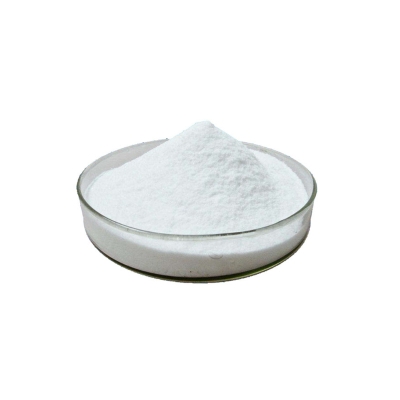-
Categories
-
Pharmaceutical Intermediates
-
Active Pharmaceutical Ingredients
-
Food Additives
- Industrial Coatings
- Agrochemicals
- Dyes and Pigments
- Surfactant
- Flavors and Fragrances
- Chemical Reagents
- Catalyst and Auxiliary
- Natural Products
- Inorganic Chemistry
-
Organic Chemistry
-
Biochemical Engineering
- Analytical Chemistry
-
Cosmetic Ingredient
- Water Treatment Chemical
-
Pharmaceutical Intermediates
Promotion
ECHEMI Mall
Wholesale
Weekly Price
Exhibition
News
-
Trade Service
▎WuXi AppTec content team editor
The use of multi-receptor agonists to treat hyperglycaemia and obesity in people with type 2 diabetes may improve short- and long-term outcomes
.
LY3437943 is an investigational triple agonist peptide with potent activity against glucose-dependent insulin stimulating polypeptide (GIP) and glucagon-like peptide-1 (GLP-1), as well as glucagon receptors, for the treatment of type 2 diabetes and obesity
.
of LY3437943 in patients with type 2 diabetes.
Results showed that LY3437943 significantly improved blood glucose and body weight during 12 weeks of treatment and showed a safety profile
comparable to other incretin agonists.
The study was recently published in The Lancet
.
Screenshot source: The randomized, double-blind, placebo-controlled, proof-of-concept, multi-dose escalation phase 1b trial on the official website
of The Lancet included a total of 72 patients with type 2 diabetes for at least 3 months and glycated hemoglobin (HbA1c) value of 7.
0%~, in 4 centers in the United States between December 18, 2019 and December 28, 2020 10.
5% adult patients with a body mass index of 23 kg/m 2~50 kg/m 2, and stable weight (change <5% in the first 3 months), aged20 to 70 years, were randomly assigned to 5 ascending doses of LY3437943 group, placebo group and dulaglutide 1.
5 mg group in a 9:3:1 ratio for 12 weeks
。
The primary outcome was safety and tolerability of LY3437943, and secondary outcomes were its pharmacodynamics and pharmacokinetics
.
The results show:
Fifteen participants received placebo, 5 received dulaglutide 1.
5 mg, 9 received 0.
5 mg, 9 received 1.
5 mg, 11 received 3 mg, 11 received 3/6 mg, and 12 received 3/6/9/12 mg LY3437943
.
Twenty-nine participants terminated the study
early.
Treatment-related adverse events (TEAEs) were reported in 33 (63%), 3 (60%) and 8 (54%) cases in the LY3437943 group, the duraglutide 1.
5 mg group, and the placebo group, with gastrointestinal disease being the most commonly reported TEAE
.
The pharmacokinetic parameters of LY3437943 are proportional to the dose and the half-life is about 6 days
.
At week 12, the placebo-corrected mean daily blood glucose of the three highest dose cohorts in the LY3437943 group was significantly lower than baseline (mean difference in least squares of the 3 mg group was -2.
8 mmol/L [90% CI: -4.
63~-0.
94]; -3.
1 mmol/L in the 3/6 mg group [90% CI: -4.
91~-1.
22]; -2.
9 mmol/L [90% CI: -4.
70~-1.
01]) in the 3/6/9/12 mg group
.
Placebo-corrected HbA1c was also significantly reduced in the three highest-dose groups (-1.
4% [90% CI: -2.
17~-0.
56] in the 3 mg group; -1.
6% [90% CI: -2.
37~-0.
75] in the 3/6 mg group; 3/6/9/12 mg was -1.
2% [90% CI: -2.
05~-0.
45]).
The placebo-corrected weight loss in the LY3437943 group was dose-dependent (the weight loss in the 3/6/9/12 mg group was the most significant, reaching -8.
96 kg [90% CI: -11.
16~-6.
75]).
In conclusion, the safety and tolerability data of this study suggest that LY3437943 has a comparable safety profile
with other incretin agonists.
During the 12-week treatment period, LY3437943 was shown to significantly improve glycemic control and weight
.
These findings inform a Phase 2 study of LY3437943 in type 2 diabetes and obesity
.
A series of new types of therapies have become hot spots in recent years, such as cell/gene therapy, novel antibodies, RNA therapies, protein-degrading drugs, etc.
, which are expected to rewrite the future treatment landscape
.
To find out how much healthcare practitioners care about therapeutic innovation, we invite you to take 1 minute to fill out the questionnaire
.
To thank you for your support, we will randomly select 15 participants and present 1 copy of the 2023 Chinese New Year Exquisite Cultural and Creative Gift Box.
👇 Click here to fill out the questionnaire and complete 👇 it in 1 minute







